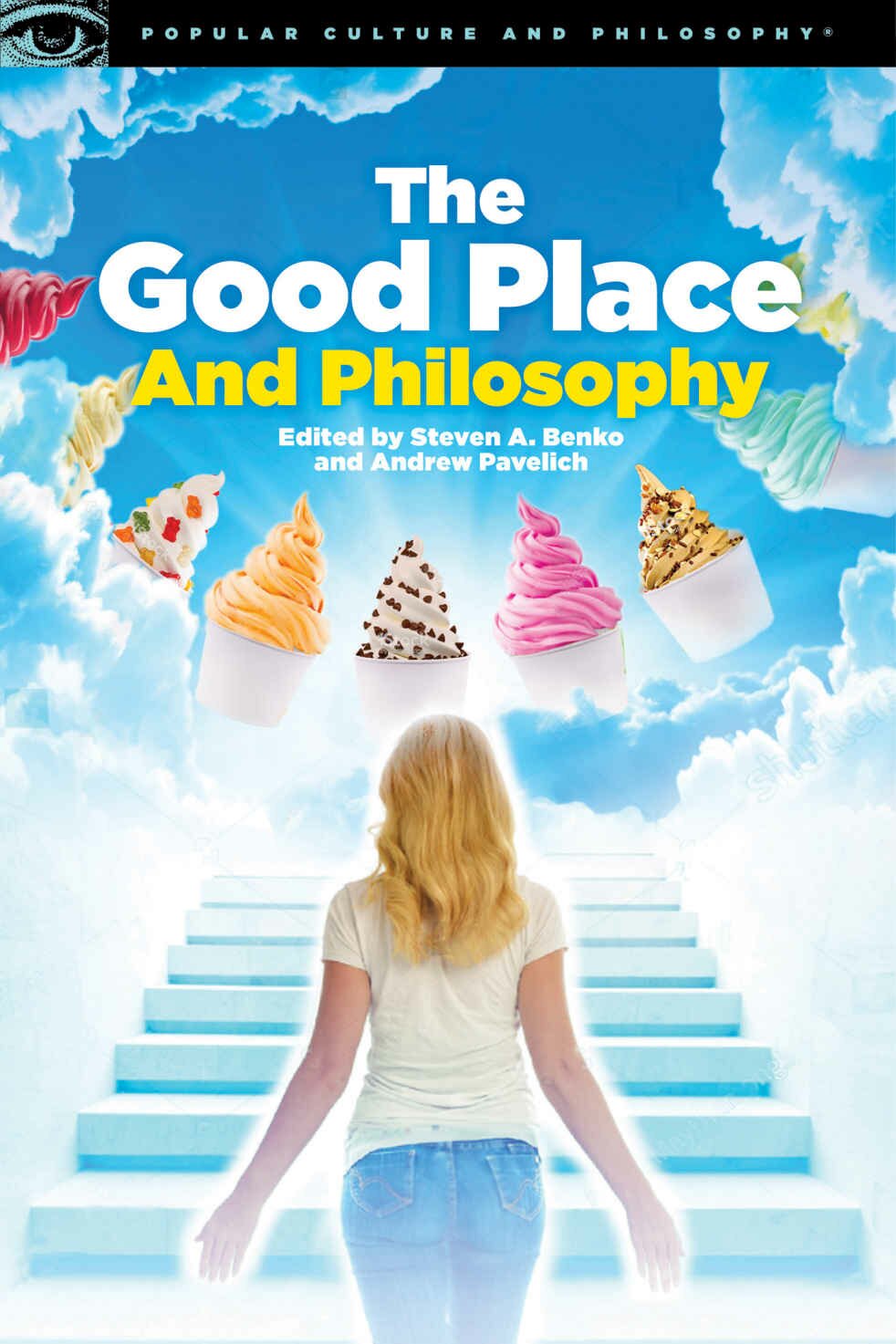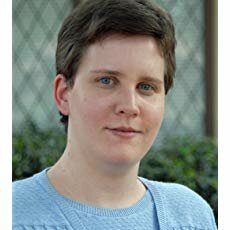The “And Philosophy” series mines the philosophical questions and insights that are presented by various popular culture entries. For example, they’ve published philosophy books on Blade Runner, Doctor Who, Battlestar Galactica, Dune, Ender’s Game, The Handmaid’s Tale, and literally dozens of others. I receive a few of the new editions from the publisher in exchange for an honest review. That’s how I got The Good Place and Philosophy.
I was aware of the TV show but hadn’t watched it before. Spoiler alert – I’m going to spoil nearly everything.
Here’s the premise of “The Good Place”. A woman finds out she’s dead and seems to be in heaven. This is “The Good Place”. Then she learns that she doesn’t belong there at all and struggles to avoid being sent to “the Bad Place”. At the end of the first season, she and three friends realize that they aren’t in Heaven at all but “The Bad Place”. This is simply Michael’s attempt to create a place of psychological torture instead of the classic physical torture. One essay discusses how the Bad Place is heaven for demons, and it also explains how Michael ends up on the side of the people he’s trying to punish. In the meantime, the Good Place is his personal Bad Place.
We see Eleanor trying to become a better person in the hope of staying in what she merely thinks is heaven. Her assigned soulmate, Chidi, is an ethics professor. The book describes how they’re yin and yang, praxis and theory, and they actually fall in love. It is fascinating how many ethics professors decided to analyze the chronically indecisive Chidi. Several times, it led to a criticism of Kant, too.
Jason is like Eleanor, a person who knows immediately he doesn’t belong in what seems like Heaven. He’s presented as a silent Buddhist monk. He’s a pre-successful DJ who died trying to pull off a heist. He’s so lacking in self-awareness or moral direction that he’s oblivious to most moral systems, especially dualism. He’s paired with Tahani, a name-dropping rich socialite who became so trying to meet her parents’ incredible expectations. While Tahani comes to realize how her bitter rivalry with her sister hurt her own prospects, there’s not much analysis of her.
In the second season, the fantasy world expands. We learn about “The Middle Place”. It isn’t the classic version of Purgatory. It is a compromise between heaven and hell for one person and, eventually, Janet’s failed creation. One essay explores the philosophical quandary that Janet herself is. A different one discusses how their system needs a purgatory with the intent of raising people up to “The Good Place”, what “the Good Place” Michael created ends up becoming. After all, even the demon Michael ends up deciding that he’s friends with the humans and risks his end to give them another chance. The book itself explains why you need both knowledge of bad and the ability to choose it in order to be truly good. Michael is notable for making that choice in a reasonable move from villain to potential savior of humanity.
We learn about the eternal bureaucracy that maintains this karmic accounting system. (It is literally called Accounting.) In this fantasy series, the effects of your actions are accounted for in the moral worth of the action. The argument “the ends justifies the means” also means “the distant, negative side effects that you couldn’t imagine hurt you in the afterlife”. The very nature of our high tech society hurts us by the old karmic standards. For example, ordering artificially grown roses from a website to be shipped to your sweetheart costs you points relative to walking in a garden, picking it and giving it to her. Yet the modern person would see it as net positive – you gave a gift to the person. One essay analyzes the oppressive nature of such an impersonal bureaucracy. Ironically, it leaves out one of the few real world examples that are a direct parallel – the Sesame Credit system in China.
We also meet “Gen”, short for Hydrogen. She’s a judge that arbitrates the rare disputes between the Good Place and the Bad Place. It is rare because no one has made it to the Good Place in several centuries. Interestingly, God is missing, though we have souls, demons, angels and other other-worldly creatures. Maybe the Higher Power will make an appearance if the series continues.



Comments
Leave a Reply